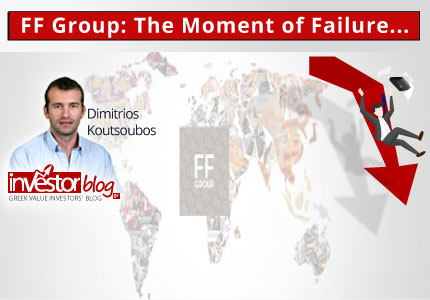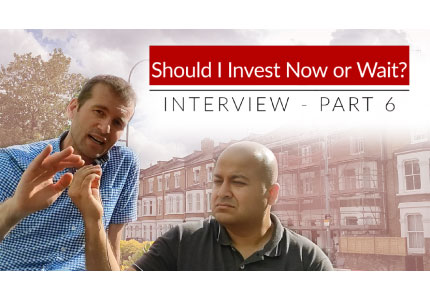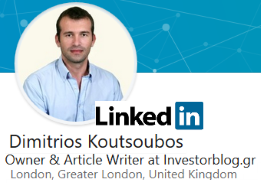 by Dimitrios Koutsoubos
by Dimitrios Koutsoubos
From time to time, I have presented investing ideas that have proven to be extremely successful. In addition, my personal portfolio has significantly outperformed the Greek market, as the newsletter subscribers better know. So, the story of FF Group (ATH:FFGRP) with the Chinese accounting fraud and the collapse of the stock looks like a dark spot. However, this is an opportunity for highlighting the fact that even a good investing course is not without mistakes or failures. Conversely, failures are gifts and elements for the long-term success and progress.
The first reaction after the loss of capital is emotional and rather contains a great amount of thoughts of regret. “Why did I invest in this stock?”. “Why didn’t I pay the necessary attention to the signs of danger I had detected?. “I wish I had been more conservative”. At the same time, it leads to some loss of confidence and drives the investor to be more cautious towards his subsequent investing choices and decisions. It can happen in such an extend, that if the investor does not manage to reverse this mindset, he may be at the risk of taking the wrong lessons or even damage his investing behavior and strategy. At this point, coolness and psychical strength is what is needed.
So, I will start with a comforting thought to gain some courage. It is about the reminding ourselves about the importance of diversification in a portfolio. And this thought is comforting for me, because luckily after many years of investing, I am one of those that tends to diversify a lot compared to what other value investors do. And I highly diversify (20-30 different stocks), not just to be protected in investing terms — 10 stock are enough for that. I do that so I can keep my coolness, even if one of my peaks is turning to total loss. Recently, I saw a video of the famous investor, Mohnish Pabrai, saying that he has changed his mind about his belief on supporting high concentration in a portfolio. In fact, he was calling the readers of his book to ignore this specific chapter in which he was advocating the over-concentration.
Of course, it would be better if we moved forward, from the comforting thoughts and the things we did well to the more unpleasant and uncomfortable thoughts. One such thought is that if we desire to become better, we must accept our personal responsibility. Even in cases of fraud, let’s wonder: Did I do something wrong? If so, what was that? What could I do better in future? Certainly, we are not responsible for other people’s behavior, but we are responsible in so far as that we did not protect ourselves against them.
We can not control the rain, but we can choose when to hold an umbrella. An automatic but hasty conclusion is to find us wrong just because we did not hold an umbrella when rained, or because we hold it when was sunny. Let’s imagine a scenario that rain probability in 10%, that by rationally thinking we decide to expose to sun, but ultimately the improbable outcome of rain comes true. In retrospect it is obvious that holding an umbrella would be more profitable. But, would it be the right decision? Definitely no, because if we had taken this decision 10 times, we would be losers 9 times. The outcome matters, but the correctness of our decisions is better to be judged in a holistic basis.
A sensitive point is that the mechanisms, methods and information we have are not always capable of giving a reliable answer of the probabilities of each outcome. What is known and what unknown, what is random and what predictable? The thing that is unknown to me or the random human, and only approachable through probabilities, it may be totally known to another real or imaginary observer. Philosophers, scientist or spiritual people, have more to say about that. But, the investor is the one who is exposed to live with it and cultivate it. That is because he puts so much effort to analyse the environment and estimate the future, then he is really exposed, and in the end he receives constant feedback. And if he does not manage to develop an adequate strategy and philosophy, he is not going to survive as an investor. In that sense, it is so crucial for everyone to understand how endless the unknown is. The investor must respect it, understanding his limits, and finding ways to approach and face it.
After this point, one person may think that is better to face questionable situations, like FF’s one, statistically. Another person may think that is better for him to stay away. About me, I respect the unknown, but my experience has teached me the the outcome may be positive even when I deal with cloudy conditions, since risk-reward is adequate. Even, if I have experienced total loss at some of my picks, the profits of other successful picks have overlap the losses. If I was too cautious towards risk and the unknown, I would have experienced less losses, but I would not have been exposed in higher performance.
I don’t say the above to sugarcoat this failure. On the contrary, FF story will be an opportunity to give answers in questions like those below, that ultimately may help me improve.
- Could I estimate in a more reliably the probabilities of an accounting scandal in a same situation in the future? (Already, a reader of the blog has proposed me to read an interesting book. I thank him in public)
- Did I violate my rules? It seems no.
- Making the rules and the strategy more conservative, would it be something that could add or subtract value and future performance from my portfolio?

Few months ago, I was writing those about FF at “5 Greek Stocks for Intelligent Investors”
What really scares is that FF is not a small cap, where markets fail often. It is a stock on the surface, so an investor should respect market’s opinion, that probably is aware of something else and has not misunderstood the stock. I think that only the event of an accounting scandal or something destructive for the company could make such an investment ending in loss.
So, shouldn’t I pay more attention and focus on the long term absence of cash flows, since I was suspicious for an accounting scandal? Shouldn’t I search for a more convincing answer and be more certain that FF is not a value trap?
Anyway, the process of self-assessment and self-criticism it is better under psychical calmness and after data have become more stable. For example, we will need some time before we know what exactly has happened with FF. There is no reason for rushing. Soon, we will be able to say more in details about this case.

In conclusion, let’s take the responsibility of our successes or failures and let’s try to spot our mistakes without guilt or egoism, so that we can have the opportunity to become better. We need calmness, but also deep investigation, because it is not just the psychological factor that blurs our views, but also it is the fact that the relationship between action and outcome is sometimes complex and misleading. Thus, our approach should be analytical, holistic, in a long-term basis, rather short-term and fragmented.
Dimitrios Koutsoubos
*Content presented on Investorblog does not present any recommendation for stock transactions. All investors are advised to conduct their own independent research into individual stocks before making a purchase decision.
Ελληνικά







Leave a Reply